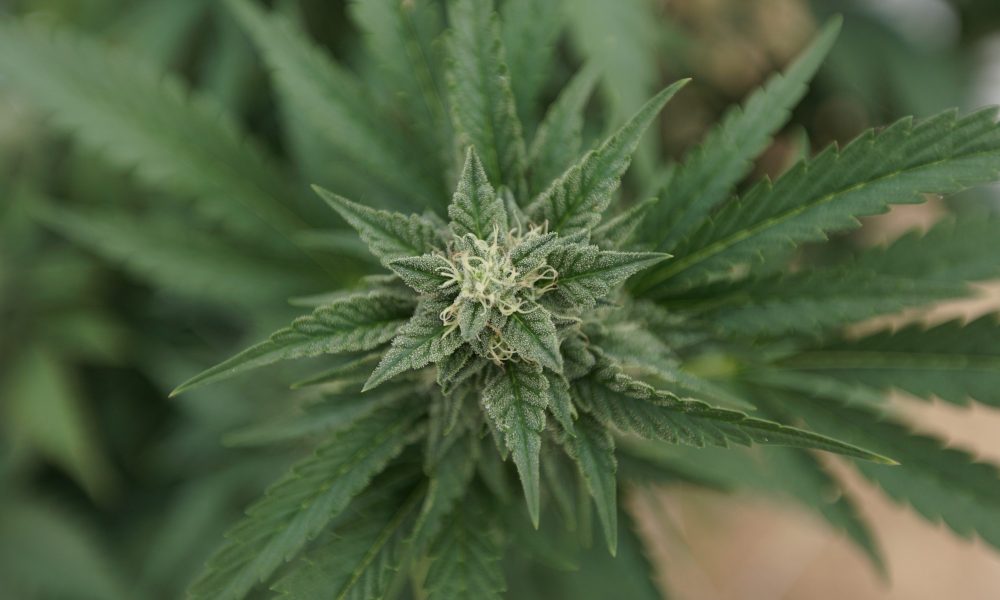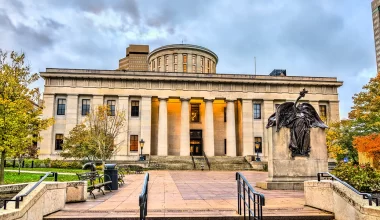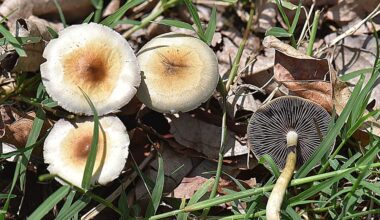New York regulators on Thursday voted to grant conditional marijuana cultivation licenses to a number of hemp businesses as one of the first steps toward ensuring an adequate supply of cannabis when the state’s adult-use market launches later this year.
And separately, the Cannabis Control Board (CCB) approved revised regulations to allow medical marijuana patients to grow their own plants for personal use following a public comment period on initial rules that were proposed last year.
It’s been about a year since an adult-use legalization bill was enacted into law, and regulators have spent months preparing for implementation. At CCB’s meeting on Thursday, members approved 52 conditional cultivation licenses. More than 150 applications had been submitted, and remaining applicants will continue to be reviewed on a rolling basis.

Via CCB.

Via CCB.
Gov. Kathy Hochul (D) signed a bill from Assembly Majority Leader Crystal Peoples-Stokes (D) and Sen. Michelle Hinchey (D) to create conditional licenses in February. The intent is to allow existing hemp operators to get a head start on growing marijuana to meet demand for the forthcoming industry.
“New York’s farms have been the backbone of our state’s economy since before the American Revolution, and now, New York’s farms will be at the center of the most equitable cannabis industry in the nation,” Hochul said in a press release on Thursday. “I’m proud to announce the first adult-use cannabis cultivation licenses in the state, and I’m proud of the work the Office of Cannabis Management and the Cannabis Control Board are doing to get adult-use cannabis sales up and running as fast as possible without compromising our mission to uplift communities and individuals most impacted by the past century of cannabis prohibition.”
Conditional cultivator licensees needed to have been authorized by the state Department of Agriculture to grow hemp as of December 31, 2021—and have grown the crop for two of the past four years. They’re also required to “participate in an environmental sustainability program and a social equity mentorship program.”
BREAKING: The New York State Cannabis Control Board just approved the first 52 adult-use cannabis cultivation licenses for farms across the state.
The first cannabis product on dispensary shelves will come from NY’s hard-working family farmers, not out-of-state corporations.
— NYS Office of Cannabis Management (@nys_cannabis) April 14, 2022
Meanwhile, regulators also advanced a rule last month to make it so people with prior marijuana convictions, or whose family members have been harmed by criminalization, will get the first round of adult-use marijuana retailer licenses—ahead of existing medical cannabis businesses. A recent poll found that most New Yorkers voters are against that proposal.
The licensing development is one part of what the Hochul administration is calling the “Seeding Opportunity Initiative,” which she also announced last month.
Office of Cannabis Management (OCM) Executive Director Chris Alexander said that he expects upwards of 200 “justice involved” applicants to receive the priority licenses under the proposal, with retailers potentially coming online by the year’s end.
Advocates are separately encouraged by the approval of a new revised rule providing a home grow option for medical marijuana patients. After filing the initial regulations late last year, the proposal was amended and is now generally more lax on restrictions.
In general, the rule would allow registered patients and caregivers to grow up to six plants, only three of which could be mature. They could possess up to five pounds of cannabis derived from those plants, which is consistent with the state’s adult-use legalization law.
But with input from the public, regulators made certain changes in the latest iteration, initiating a new 45-day public comment period. For example, it now clarifies that plants can be grown outdoors, but they must still be enclosed and not visible to the public.
It also removes language requiring that patients and caregivers grow marijuana “in a reasonable manner that prioritizes attempts at mitigating cannabis odor.”
Another previous provision stipulating that patients should install and maintain security devices to prevent underage people from accessing the plants was removed.
With respect to caregivers, the new rule clarifies that they can grow for up to four patients and would be permitted to have a maximum of 12 plants for those patients at any one time.
Landlords would be able to refuse to lease to or penalize tenants “if failing to do so would cause the landlord to lose a monetary or licensing related benefit under federal law or regulations” under the newly proposed rule.
Finally, regulators also included provisions laying out rules for licensed businesses that sell marijuana plants or seeds for home grow purposes, including requirements for labeling such products to list strain names and potential potency.
Meanwhile, New York lawmakers recently sent a budget proposal to the governor’s desk that includes provisions to let marijuana businesses take state tax deductions that are available to other industries despite an ongoing federal ban on cannabis.
Sen. Jeremy Cooney (D) filed a standalone bill in December seeking a similar carve-out for the state’s burgeoning cannabis market. Assemblymember Donna Lupardo (D) followed suit in her chamber. Cooney also filed a bill this week to allow regulators to disclose certain information about cannabis licensees to financial institutions to promote marijuana banking.
—
Marijuana Moment is already tracking more than 1,000 cannabis, psychedelics and drug policy bills in state legislatures and Congress this year. Patreon supporters pledging at least $25/month get access to our interactive maps, charts and hearing calendar so they don’t miss any developments.![]()
Learn more about our marijuana bill tracker and become a supporter on Patreon to get access.
—
As it stands, adults 21 and older can possess and publicly consume cannabis, as well as gift marijuana to other adults as long as they aren’t being compensated. But regulators are still finalizing licensing rules, and there are currently no retailers that are authorized to sell cannabis for adult use in the state.
Hochul has repeatedly emphasized her interest in efficiently implementing the legalization law.
The governor released a State of the State book in January that called for the creation of a $200 million public-private fund to specifically help promote social equity in the state’s burgeoning marijuana market. That funding, called the “New York Social Equity Cannabis Investment Program,” is the last component of the Seeding Opportunity Initiative.
Hochul said that while cannabis business licenses have yet to be approved since legalization was signed into law last year, the market stands to generate billions of dollars, and it’s important to “create opportunities for all New Yorkers, particularly those from historically marginalized communities.”
That proposal was also cited in the governor’s executive budget, which was released in January. The budget also estimated that New York stands to generate more than $1.25 billion in marijuana tax revenue over the next six years.
Enacting legislation that expedites licensing could help the state reduce the number of businesses that are effectively using the legal “gifting” provision of the state’s marijuana law to give away cannabis for “free” if a non-marijuana-related purchase is made.
New York regulators recently issued warnings to more than two dozen businesses that they allege are either illegally selling marijuana without a license or exploiting the “gifting” component.
Here are some other ways that New York lawmakers and regulators are working to build upon the legalization law as the state prepares to implement retail sales:
In February, for example, a state senator filed a bill that would promote recycling in the marijuana industry once retail sales officially launch.
Hinchey is also sponsoring that legislation, which would require cannabis shops to apply a $1 deposit for any marijuana products sold in single-use plastic containers and also reimburse consumers for that fee if they return the container.
The senator is also behind a separate bill filed last year that would prioritize hemp-based packaging over synthetic plastics for marijuana products.
The recycling bill is identical to an Assembly version filed by Assemblywoman Patricia Fahy (D) last year.
The state Department of Labor separately announced in recent guidance that New York employers are no longer allowed to drug test most workers for marijuana.
Meanwhile, a New York lawmaker introduced a bill in June that would require the state to establish an institute to research the therapeutic potential of psychedelics.
Another state legislator filed legislation in December to legalize psilocybin mushrooms for medical purposes and establish facilities where the psychedelic could be grown and administered to patients.
Meanwhile, as New York prepares the launch of its adult-use marijuana market, OCM announced a significant expansion of the existing medical cannabis program.
Now doctors will be able to issue medical marijuana recommendations to people for any condition that they feel could be treated by cannabis, rather than rely on a list of specific eligible maladies.
Separately, the mayor of New York City says he’s looking into the idea of authorizing marijuana to be grown in greenhouses on the rooftops of public housing buildings—an ambitious proposal that’s unlikely to sit well with the federal government, which provides funding to support the NYC Housing Authority (NYCHA).
Photo courtesy of Chris Wallis // Side Pocket Images.
Medical Disclaimer:
The information provided in these blog posts is intended for general informational and educational purposes only. It is not a substitute for professional medical advice, diagnosis, or treatment. Always seek the advice of your physician or other qualified healthcare provider with any questions you may have regarding a medical condition. The use of any information provided in these blog posts is solely at your own risk. The authors and the website do not recommend or endorse any specific products, treatments, or procedures mentioned. Reliance on any information in these blog posts is solely at your own discretion.






